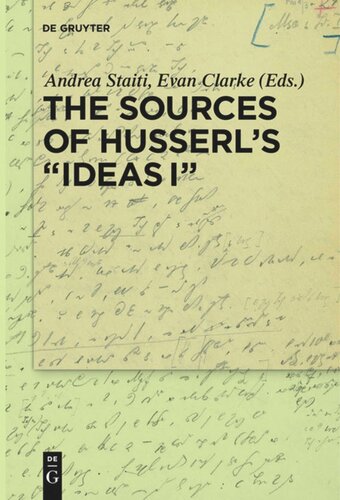

Most ebook files are in PDF format, so you can easily read them using various software such as Foxit Reader or directly on the Google Chrome browser.
Some ebook files are released by publishers in other formats such as .awz, .mobi, .epub, .fb2, etc. You may need to install specific software to read these formats on mobile/PC, such as Calibre.
Please read the tutorial at this link: https://ebookbell.com/faq
We offer FREE conversion to the popular formats you request; however, this may take some time. Therefore, right after payment, please email us, and we will try to provide the service as quickly as possible.
For some exceptional file formats or broken links (if any), please refrain from opening any disputes. Instead, email us first, and we will try to assist within a maximum of 6 hours.
EbookBell Team

0.0
0 reviewsDespite an ever-growing scholarly interest in the work of Edmund Husserl and in the history of the phenomenological movement, much of the contemporaneous scholarly context surrounding Husserl's work remains shrouded in darkness. While much has been written about the critiques of Husserl's work associated with Heidegger, Levinas, and Sartre, comparatively little is known of the debates that Husserl was directly involved in. The present volume addresses this gap in scholarship by presenting a comprehensive selection of contemporaneous responses to Husserl's work. Ranging in date from 1906 to 1917, these texts bookend Husserl's landmark Ideas for a Pure Phenomenology and Phenomenological Philosophy (1913). The selection encompasses essays that Husserl responded to directly in the Ideas I, as well as a number of the critical and sympathetic essays that appeared in the wake of its publication. Significantly, the present volume also includes Husserl's subsequent responses to his critics. All of the texts included have been translated into English for the first time, introducing the reader to a wide range of long-neglected material that is highly relevant to contemporary debates regarding the meaning and possibility of phenomenology.